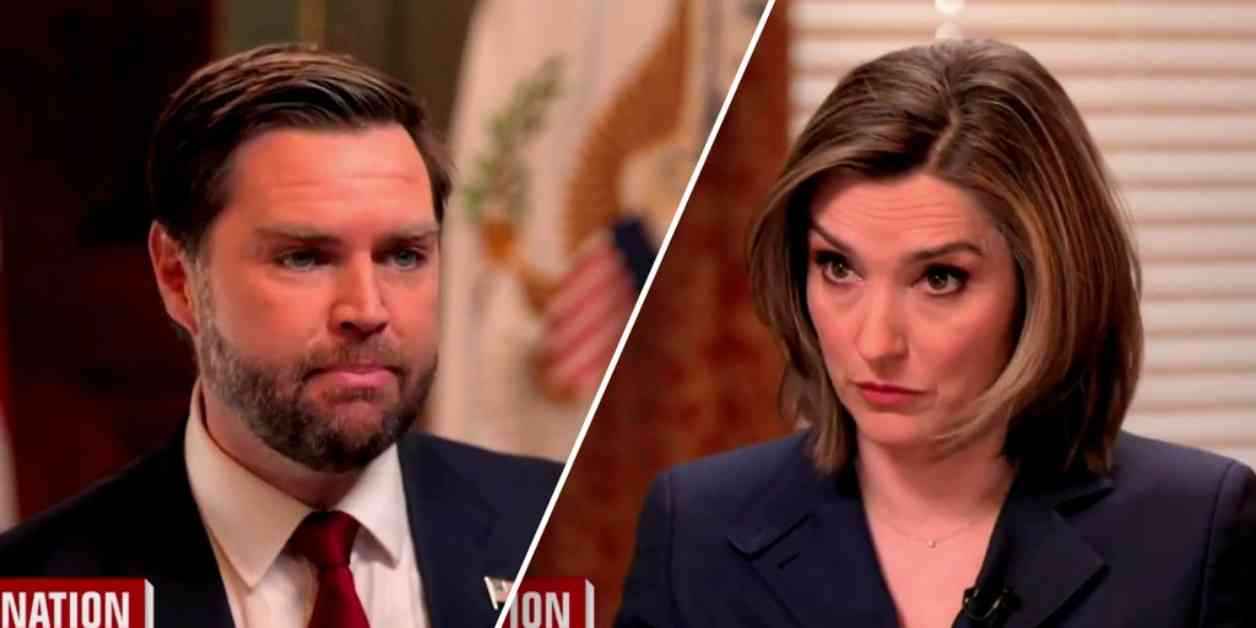Vice President JD Vance Engages in Heated Debate Over Refugee Vetting
In a recent interview on “Face the Nation,” Vice President JD Vance found himself embroiled in a contentious discussion with CBS anchor Margaret Brennan regarding the vetting of illegal immigrants and refugees. The conversation centered around President Donald Trump’s executive order, which temporarily suspended refugee resettlement operations while calling for enhanced vetting for visa applications.
During the interview, Brennan questioned Vance about his previous statements advocating against abandoning individuals who had undergone proper vetting. Vance expressed skepticism regarding the thoroughness of the vetting process for immigrants and refugees, citing instances of individuals who had passed screening only to later be implicated in terrorist activities. He emphasized the importance of protecting American citizens from potential security threats posed by inadequately vetted individuals.
As tensions escalated, Brennan pressed Vance on his stance in light of the thousands of Afghan refugees whose resettlement processes were stalled due to Trump’s executive order. Vance reiterated his commitment to prioritizing the safety and well-being of American citizens, asserting that the potential risks associated with admitting unvetted individuals far outweighed any concerns about humanitarian aid.
The discussion took a personal turn when Vance shared his reluctance to have his children share a neighborhood with individuals who had not undergone proper vetting. Despite Brennan’s attempts to challenge his perspective, Vance stood firm in his belief that safeguarding the country’s security should take precedence over accommodating unvetted refugees.
In addition to the refugee vetting issue, Vance also defended Trump’s decision to end birthright citizenship for children of illegal immigrants. He argued that while America’s founding was shaped by immigrants and settlers, the nation’s immigration policies should prioritize national security and the well-being of its citizens over granting automatic citizenship to temporary visitors.
The exchange between Vance and Brennan highlighted the complex and contentious nature of immigration policy in the United States, underscoring the challenges of balancing humanitarian concerns with national security interests. As the debate continues to unfold, it remains clear that the issue of refugee vetting will remain a point of contention and debate among policymakers and the public alike.
As the Vice President’s views on immigration and national security come under scrutiny, the conversation surrounding refugee resettlement and vetting processes is likely to remain a divisive and emotionally charged topic in the political landscape. Ultimately, the clash between Vance and Brennan serves as a microcosm of the broader debate over immigration policy and national security in the United States.


